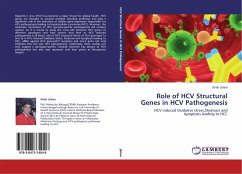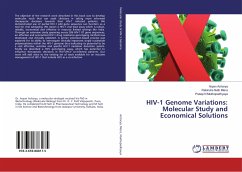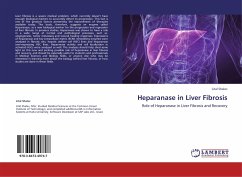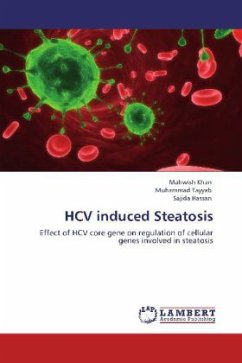Hepatitis C virus (HCV) has become a major threat for global health. HCV genes are thought to activate multiple signaling pathways and play a significant role in the alteration of cellular gene expression responsible for HCV pathogenesis leading to hepatocellular carcinoma (HCC). However, the molecular mechanism of HCV genome-specific pathogenesis still remains unclear. So it is crucial to study the cross talk between HCV genes of different genotypes and host factors that lead to HCV induced pathogenesis It all about role of HCV structural Genes of HCV genotype 1a and 3a in HCV induced Oxidative Stress, Steatosis and Apoptosis leading to HCC, siRNA against HCV genes,HCV receptors and Cox-2 gene not only inhibited HCV but also HCV pathogenesis. Collectively, these studies not only suggest a genotype-specific crosstalk between key players of HCV pathogenesis but also may represent viral host genes as therapeutic targets.
Bitte wählen Sie Ihr Anliegen aus.
Rechnungen
Retourenschein anfordern
Bestellstatus
Storno








